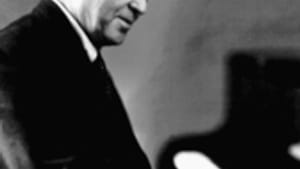Stay in the Loop
BSR publishes on a weekly schedule, with an email newsletter every Wednesday and Thursday morning. There’s no paywall, and subscribing is always free.
If it's Tuesday, these must be Masterworks
The Orchestra's strange new "Collections'

Three years ago the Philadelphia Orchestra conducted a study that found markedly different sets of audience expectations, and recommended four differing approaches to lure audiences. Now concerts are labeled as parts of either the Connoisseur, Odyssey, Celebration or Masterworks Collections.
James Undercoffler, then president of the Orchestra, told me that almost everyone in his circle of friends preferred the Masterworks, but he realized that the organization had to reach out to other constituencies. The trouble is that the guidelines for each "collection" seem amorphous and arbitrary.
The Connoisseur is billed on the Orchestra's website as "Traditional works in a traditional format... a range of inspiring symphonies, concertos and vocal works that will transport and transcend. Be uplifted by the classics that have enthralled generations and thrill in the exciting new discoveries of today." This week's Mozart-DvoÅ™ák-Nielsen concert is classified in this slot. Since when is Nielsen "traditional"?
An unconventional piece by a virtually unknown Canadian composer, Clause Vivier, is scheduled for the first weekend of December, which is welcome news. But it's confusing to see this on a concert advertised as the most traditional Connoissseur.
"'Enduring classics'
The Masterworks are said to be "Traditional music by legendary composers... enduring classics and time-honored masterpieces. A grand cross-section." The November 12 thru 14 concerts in this collection include Prokofiev's Suite from The Love for Three Oranges, Barber's Violin Concerto and Tchaikovsky's Symphony No. 4.
The Orchestra program I reviewed three weeks ago, which I thought was rather conventional (works by Barber, Berlioz and Prokofiev), was billed as part of the Odyssey Collection: "Music to explore and learn... with musical discoveries from yesterday and today. Uncover new composers and artists or revisit old works in a new light." No one uncovered any new composers that weekend.
A forthcoming Mozart and Bruckner program is labeled as part of the Celebration Collection: "Designed for pure listening pleasure... an eclectic mix has something for everyone."
Spoken introductions
The differences among all of these seem to be less about the music choices and more about the trappings. For instance, some Celebration concerts— the ones on Tuesdays— include spoken introductions. Some conductors are good at this and others are ill suited. To cope with that problem, some Orchestra members have given the intros, which were informative and modestly entertaining. There have been attempts to add multi-media electronics, but it all seems half-hearted, as if the orchestra's leaders were thinking: You and I may not want some of these gimmicks, but let's try them.
The Philadelphia Orchestra once gave concerts with multi-colored lighting, and with no lights at all, and with scents wafting in the air, and with electronic instruments. That was 80 years ago! Plus ça change….♦
To read a response, click here.
James Undercoffler, then president of the Orchestra, told me that almost everyone in his circle of friends preferred the Masterworks, but he realized that the organization had to reach out to other constituencies. The trouble is that the guidelines for each "collection" seem amorphous and arbitrary.
The Connoisseur is billed on the Orchestra's website as "Traditional works in a traditional format... a range of inspiring symphonies, concertos and vocal works that will transport and transcend. Be uplifted by the classics that have enthralled generations and thrill in the exciting new discoveries of today." This week's Mozart-DvoÅ™ák-Nielsen concert is classified in this slot. Since when is Nielsen "traditional"?
An unconventional piece by a virtually unknown Canadian composer, Clause Vivier, is scheduled for the first weekend of December, which is welcome news. But it's confusing to see this on a concert advertised as the most traditional Connoissseur.
"'Enduring classics'
The Masterworks are said to be "Traditional music by legendary composers... enduring classics and time-honored masterpieces. A grand cross-section." The November 12 thru 14 concerts in this collection include Prokofiev's Suite from The Love for Three Oranges, Barber's Violin Concerto and Tchaikovsky's Symphony No. 4.
The Orchestra program I reviewed three weeks ago, which I thought was rather conventional (works by Barber, Berlioz and Prokofiev), was billed as part of the Odyssey Collection: "Music to explore and learn... with musical discoveries from yesterday and today. Uncover new composers and artists or revisit old works in a new light." No one uncovered any new composers that weekend.
A forthcoming Mozart and Bruckner program is labeled as part of the Celebration Collection: "Designed for pure listening pleasure... an eclectic mix has something for everyone."
Spoken introductions
The differences among all of these seem to be less about the music choices and more about the trappings. For instance, some Celebration concerts— the ones on Tuesdays— include spoken introductions. Some conductors are good at this and others are ill suited. To cope with that problem, some Orchestra members have given the intros, which were informative and modestly entertaining. There have been attempts to add multi-media electronics, but it all seems half-hearted, as if the orchestra's leaders were thinking: You and I may not want some of these gimmicks, but let's try them.
The Philadelphia Orchestra once gave concerts with multi-colored lighting, and with no lights at all, and with scents wafting in the air, and with electronic instruments. That was 80 years ago! Plus ça change….♦
To read a response, click here.
Sign up for our newsletter
All of the week's new articles, all in one place. Sign up for the free weekly BSR newsletters, and don't miss a conversation.

 Steve Cohen
Steve Cohen